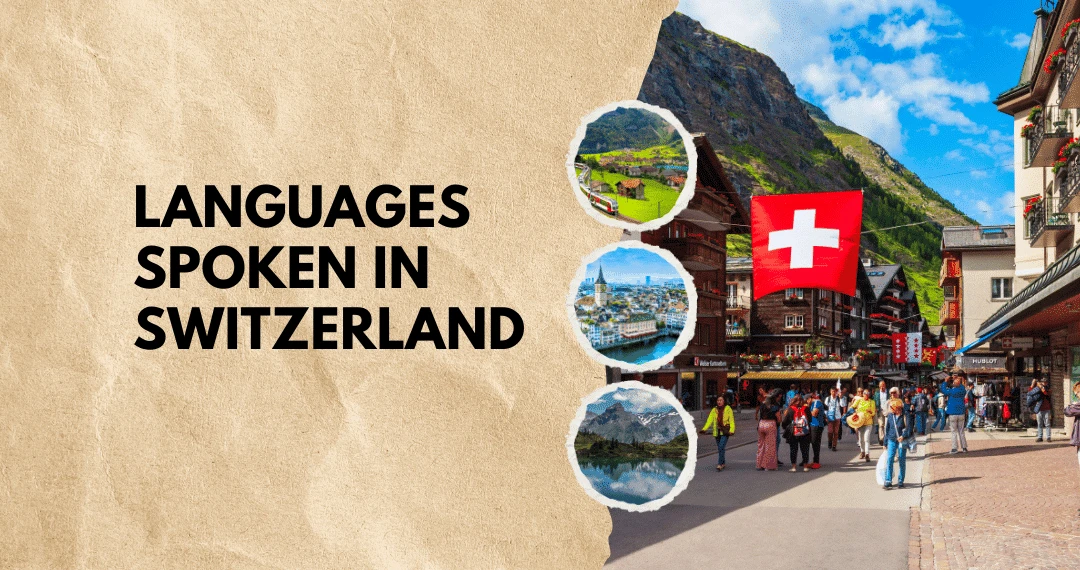Switzerland, situated in the heart of Europe, is a captivating country known for its breathtaking natural landscapes and high standards of living. The Swiss Alps dominate the scenery, with crystal-clear lakes and historic towns nestled among the towering peaks.
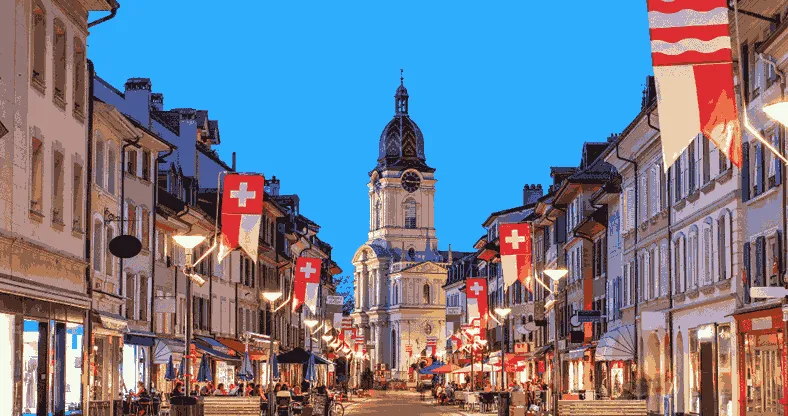
The country is a key player in the global banking, pharmaceutical, and tourism industries, attracting visitors from all corners of the globe to its major cities like Zurich, Geneva, and Bern.
Its rich history and dedication to innovation have positioned Switzerland as one of the most developed and desirable places to live, offering a harmonious mix of nature, culture, and prosperity.
Have you thought about the languages spoken in Switzerland? Keep reading to learn about the official and foreign languages spoken in the country.
Looking for Translation services in Switzerland ?
Milestone works with native translators with domain expertise to accurately translate your documents into 70+ languages. We provide translation certificates accepted by authorities across the globe.
Official languages of Switzerland
With four official languages – German, French, Italian, and Romansh – Switzerland is a multilingual country renowned for its strong economy, democratic values, and high quality of life.
The Swiss Constitution promotes equality among national languages and encourages understanding between linguistic communities. The presence of multiple languages is considered a strength, promoting cultural exchange and tolerance. Swiss citizens are encouraged to learn another national language in addition to their mother tongue to support multilingualism and intercultural understanding.
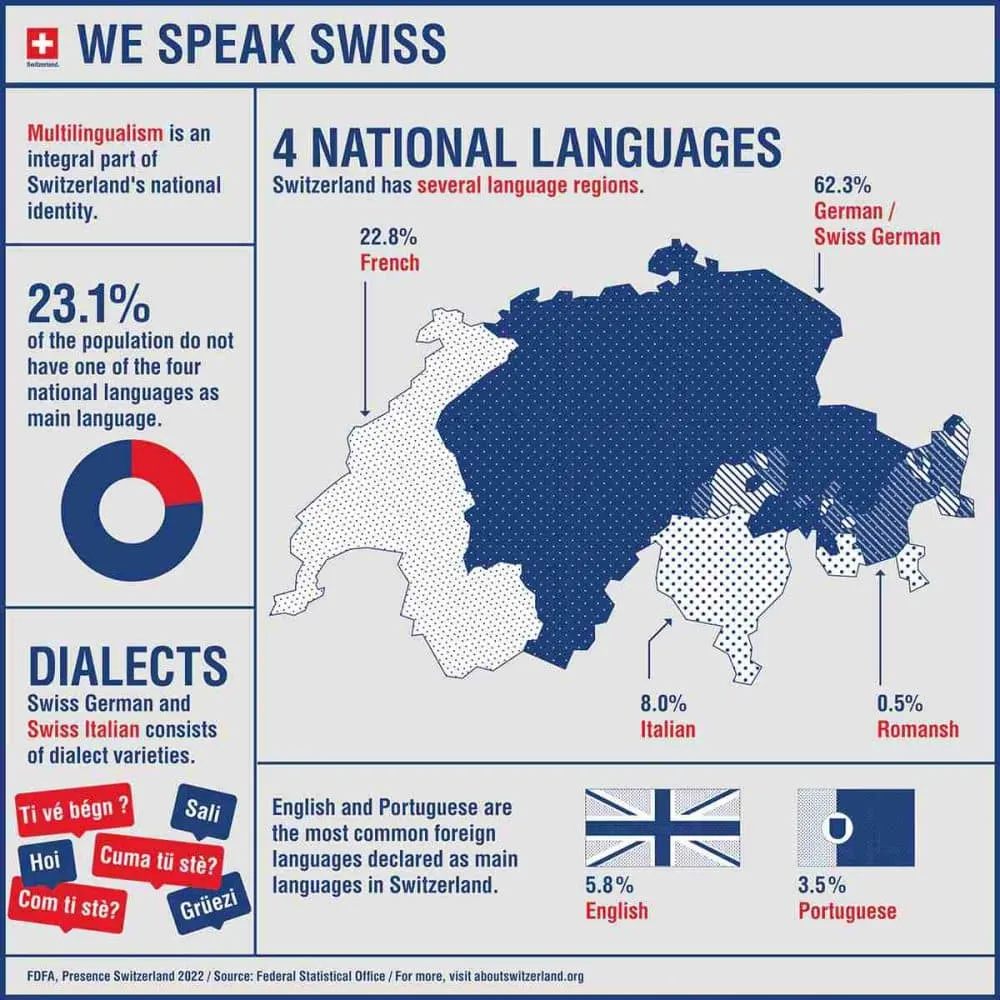
Swiss German
German is the most commonly used language in Switzerland, spoken by approximately 63% of the people. It is the main language in the northern, central, and eastern parts of the country.
Swiss German dialects, which are quite different from Standard German, are spoken in daily conversations, with High German being more common in formal situations.
Swiss French
French is the second most widely spoken language in Switzerland, used by approximately 23% of the people living in the western cantons. It is the primary language in Geneva, Vaud, Neuchâtel, and some areas of Bern and Fribourg.
While Swiss French has similarities with the French spoken in France, it also has its own unique vocabulary and pronunciation.
Swiss Italian
Italian is spoken by approximately 8% of the Swiss population, predominantly in the southern canton of Ticino and the Italian-speaking region of Graubünden. Swiss Italian shares similarities with the Lombard dialects of northern Italy while also possessing distinct characteristics of its own.
Romansh
Romansh is spoken by a small percentage of the Swiss population, specifically in certain areas of the south-eastern canton of Graubünden. This language is considered a Romance language that has its roots in Latin and shows similarities to Italian.
Romansh consists of five primary regional dialects, namely Sursilvan, Sutsilvan, Surmiran, Puter, and Vallader.
How is Swiss German different from Standard German
Swiss German and Standard German differ in several ways. Swiss German consists of several Alemannic dialects spoken in Switzerland, each with its regional variations, and belongs to the West Germanic dialect group. On the other hand, Standard German is a consistent, standardized language used in Switzerland for formal writing and official communication.
Both languages have distinct differences in vocabulary. Swiss German has integrated many words and expressions from French and Italian due to its multilingual culture, while Standard German incorporates words and phrases that are commonly used across German-speaking countries.
Although Swiss German and Standard German share a common root, they exhibit a set of differences that distinguish them, highlighting the linguistic diversity within the German-speaking community in Switzerland.
Also read: German Dialects: Everything You Need To Know
How is Swiss French different from French
Swiss French also called Romand is a dialect of French that is spoken in the region of Romandy in Switzerland.
The Swiss-French and Standard French share similarities but there are notable differences that set them apart.
The dialect has its own vocabulary which has been influenced by the local languages thereby giving it a unique identity. Swiss French has slower pronunciation making it more melodic while compared to standard French. There are also slight differences in grammar and verb conjugation, showing how the dialect has evolved in Switzerland. Despite the differences among them, they are easily understood by native speakers of both countries.
Swiss French contributes to the cultural diversity of Switzerland by showcasing distinctive linguistic characteristics that represent regional identity and promoting stronger bonds among the various French-speaking populations across the country
Foreign Languages spoken in Switzerland
Switzerland’s linguistic landscape is not limited to its official languages of German, French, Italian, and Romansh, as a variety of other languages are spoken within its multicultural society.
English
English plays a critical role in Switzerland, despite not being an official language. It serves as a common language to help bridge the linguistic gaps between different communities, particularly in areas such as business, education, and tourism. Major cities like Zurich, Geneva, and Basel have significant English-speaking communities.
The significant presence of English in official documentation can be linked to Switzerland’s status as a major economic and financial hub with extensive international trade and business activities.
Portuguese
Portuguese is spoken by around 3% of the Swiss population, primarily by immigrants from Portugal and Brazil. The prevalence of this language is particularly noticeable in urban locales, where numerous Portuguese-speaking communities have established themselves.
The incorporation of Portuguese into Swiss society is indicative of Switzerland’s immigration history and its position as a focal point for global labor movements.
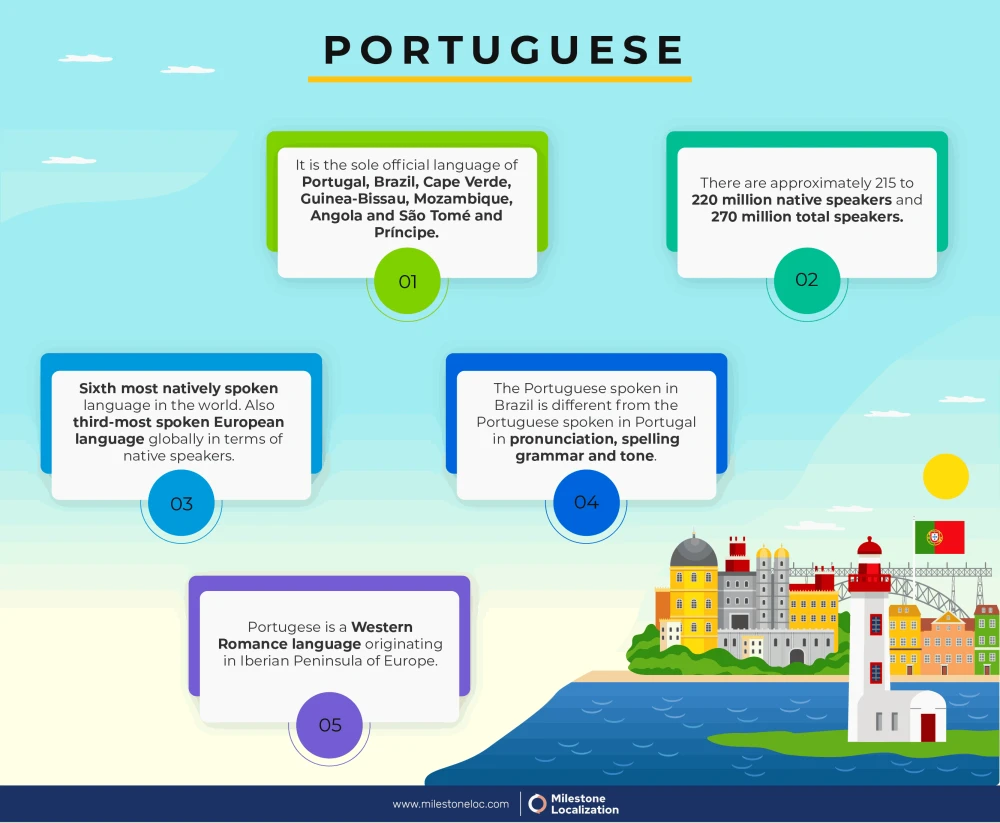
Also read: Portuguese vs Spanish – Is Spanish similar to Portuguese?
Albanian
Albanian is spoken by approximately 2% of the Swiss population, mainly by immigrants from Kosovo and Albania. The language holds significant influence in urban regions where Albanian-speaking communities have formed strong roots.
The prevalence of Albanian serves as a reflection of Switzerland’s diverse and inclusive society, showcasing its adeptness at assimilating various linguistic groups.
Spanish
Spanish is another widely spoken language, with a notable number of speakers hailing from Spain and Latin America. The presence of the Spanish-speaking community in Switzerland has shown consistent growth, enriching the cultural landscape with lively restaurants, cultural organizations, and social events.
Urban centers such as Geneva and Lausanne are home to a large population of Spanish-speaking residents, thus augmenting the diverse and multicultural atmosphere of these cities.
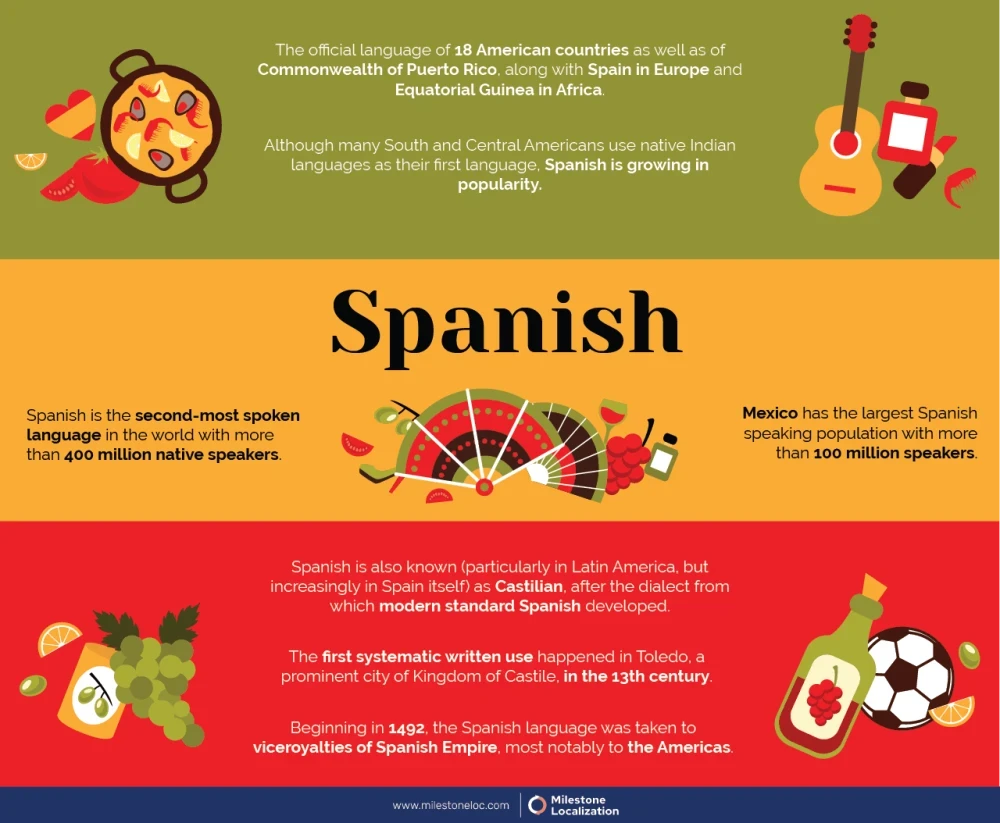
Serbo-Croatian
The Serbo-Croatian community in Switzerland reflects the country’s multicultural landscape, especially in urban areas like Zurich, Geneva, Basel, and Bern. Cultural organizations support them with festivals and events. Community-run schools offer language classes for all ages to preserve their heritage.
They contribute to sectors such as hospitality, healthcare, and construction while facing challenges like social integration and discrimination. Despite the obstacles, they enrich Switzerland’s cultural diversity and promote dialogue between different groups.
Turkish
The Turkish-speaking community in Switzerland comprises immigrants from Turkey and Turkish-speaking areas in neighboring countries. Turkish is commonly spoken in communities where a significant number of Turkish expatriates reside.
Cultural associations organize events that celebrate Turkish heritage, fostering connections among community members.
In addition to the social and cultural activities, the Turkish-speaking community in Switzerland actively engages in intercultural dialogue and cooperation with other communities.
Tamil
Switzerland is home to a vibrant Tamil community, with an estimated 42,000 Tamil speakers, primarily of Sri Lankan origin. This population arrived as refugees during the 1980s and 1990s, fleeing the Sri Lankan civil war. The Tamil diaspora has become well-integrated into Swiss society, with many employed in the hospitality and service industries.
Today, Tamil speakers can be found in various Swiss cities, with a notable concentration in Zurich, Geneva, and Bern. The Tamil presence has undoubtedly enriched Switzerland’s linguistic diversity and multicultural fabric.
Arabic
Arabic is gaining popularity in Switzerland due to the rising number of immigrants from various Arabic-speaking countries in the Middle East and North Africa. This community, especially in urban areas, is expanding, leading to vibrant cultural exchanges and a significant impact on local societies.

Also read: Which Arabic Dialect To Use & Arabic Voice-over Challenges
Looking for Translation services in Switzerland ?
Milestone works with native translators with domain expertise to accurately translate your documents into 70+ languages. We provide translation certificates accepted by authorities across the globe.
Is English spoken in Switzerland?
In Switzerland, the use of English has seen a significant increase over the last ten years, becoming more common in different regions of the country. Approximately 45% of the population speaks English, with a majority coming from the German-speaking community. English is frequently used for formal communication in cities like Zurich and Geneva.
It is now being used in everyday conversations and even in the education system, at times being favored over the country’s official languages. English is generally considered a useful means of communication in a society with multiple languages, and its significance is anticipated to increase in the near future.
Languages of Business in Switzerland
Switzerland’s multilingual business environment requires companies to navigate a complex linguistic landscape. German is spoken in the northern, central, and eastern regions where major economic centers are located. However, Swiss German dialects are more commonly used in daily conversations, while standard German is preferred for formal business interactions.
French is spoken in the western part of the country and is closely related to the French spoken in neighboring France, making it beneficial for cross-border business transactions.
Despite not being an official language, English is widely used as a universal language for international companies and organizations operating in Switzerland, a global financial and economic hub.
Italian is advantageous for businesses with connections to northern Italy. To excel in this multilingual setting, companies need to tailor their communications to the local languages while also taking advantage of the widespread use of English to facilitate interactions across different linguistic communities.
The Growing Importance of Multilingualism in Switzerland
The linguistic map of Switzerland is intricate, with numerous regions mainly using one language, but regions near language borders and in multilingual cantons exhibiting significant levels of bilingualism and multilingualism.
According to the Federal Statistical Office’s 2020 survey, 23.1% of the population uses a non-national language as their primary language, in addition to the four official languages. The Swiss government is dedicated to upholding and encouraging multilingualism through laws and regulations.
This involves initiatives to assist the lesser-used national languages such as Italian and Rhaeto-Romansh. Multilingualism is also strongly integrated into the Swiss education system, where students are usually instructed in their local language and also learn other national languages.
Switzerland is frequently praised for effectively managing its linguistic diversity, and being seen as a model for other countries. The country’s approach of promoting unity amidst diversity has been influential in promoting cooperation on multilingual education globally.
How companies can benefit from translation agencies in Switzerland
Translation and localization services are crucial in Switzerland due to their linguistic diversity. Translation agencies provide professional services that ensure accurate and culturally appropriate translations of documents, websites, marketing materials, and more.
This is vital for Swiss companies to engage with international partners, expand their reach, and project a professional image. Also, it is beneficial for companies who are looking to enter the Swiss market to enhance their reach.
Localization services take this a step further by adapting translations to local culture, ensuring that the content resonates with the target audience.
Milestone Localization is one of the companies that help organizations around the world with translating and localizing content. They have a team of language experts with diverse language skills and over 25 years of experience. Milestone Localization has worked with businesses in over 70 languages to help improve cross-cultural communication.
Conclusion
Switzerland’s diverse linguistic environment, which includes four national languages and an increasing number of immigrant languages, is a key aspect of the country’s cultural identity.
The Swiss government’s proactive measures to protect and promote multilingualism, such as policies that support minority languages and encourage multilingual education, have allowed the country to use its linguistic variety as a unifying factor.
Switzerland’s “unity in diversity” strategy is a source of inspiration for other multilingual countries, demonstrating how embracing linguistic differences can enhance national unity and promote cross-cultural understanding.
The Swiss experience illustrates that multilingualism is a strength, rather than a hurdle, in creating a flourishing, interconnected community.
Also read: Top Languages Spoken In London
Looking for Translation services in Switzerland ?
Milestone works with native translators with domain expertise to accurately translate your documents into 70+ languages. We provide translation certificates accepted by authorities across the globe.

